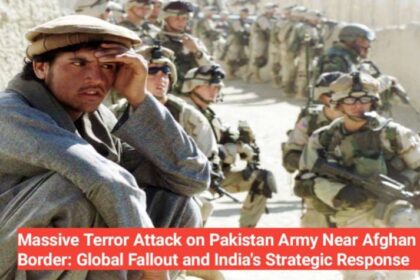Will India’s IMEC dream not complete with the conflict of Israel-Hamas war?

The India-Middle East-Europe Economic Corridor (IMEC) was launched by Narendra Modi on the sidelines of the G20 summit in New Delhi last month. It was decided that IMEC would have two separate corridors, the Eastern Corridor would connect India with the Arabian Gulf and the Northern Corridor would connect the Arabian Gulf with Europe. This will include a railway that will provide a cross-border ship-to-rail transit network, which will facilitate and enable transit of goods and services between India, UAE, Saudi Arabia, Jordan, Israel and Europe.
IMEC has been termed as a counter to China’s Belt and Road Initiative (BRI). However, with Israel now embroiled in a bloody war, it was decided during the G20 meeting that the corridor would proceed from here. But after seeing the strength of the war, it can be decided that this work may be delayed. Geopolitical analyst SL Kanthan said Israel has cut off electricity to the Gaza Strip and Israeli/American F-35 jets are bombing the area. “Saudi Arabia, Iran and Qatar have strongly voiced their support for Hamas. “The US plan for the IMEC corridor or Saudi-Israeli peace no longer looks promising.”
Jordan’s King Abdullah has reportedly decided to meet with leaders of other Arab countries to discuss efforts to de-escalate the situation and reiterate support for the Palestinian cause. While leaders of other countries are trying to reduce the impact of war with Netanyahu.
Gaza Strip after Israeli security forces became alert facing pressure. The Prime Minister of Israel said that we are currently in a state of war. He said, “The enemy will have to pay the price for this.
An unprecedented cost,” and also vowed a strong response to the intrusion. Recently G20 meeting which was held in India and yet the complete plan of IMEC project has not been revealed. However, if the Middle East remains mired in conflict for a long time, it could impact the corridor’s construction work. As per the MoU of the project, it will be funded by the G7’s Partnership for Global Infrastructure Investment (PGII) initiative. With the differing stances of the G7 countries and Middle Eastern powers on the historical conflict between Israel and Palestine, the project’s prospects have been questioned.
The Abraham Accords was a joint statement made between Israel, the United States, and the United Arab Emirates on August 13, 2020. The agreement also refers to the agreement reached between Israel, Bahrain and the United Arab Emirates to normalize relations between the three.
Then after that-U.S. President Donald Trump cosponsored the Abraham Accords in September 2020. The agreement normalized diplomatic relations between Israel and two important Sunni Arab states in the Gulf. The agreements also encourage and inspire efforts to promote interreligious and intercultural dialogue to advance a culture of peace among the three Abrahamic religions and all of humanity. The agreements recognize the sovereignty of each state, oblige both states to exchange ambassadors, and conclude bilateral agreements on a range of subjects, including visa agreements. The agreement that was signed on September 15, 2020.
Impact of war on IMEC
The Hamas–Israel war could affect the IMEC project in several ways:
• Increased costs: The war is expected to increase insurance premiums and shipping costs, making it more expensive to transport goods along the IMEC corridor.
• Delays: The war may also delay construction of IMEC infrastructure such as roads, rail lines and ports.
• Political instability: War could also contribute to political instability in the Middle East, making the IMEC project more difficult to implement.
India’s concerns regarding war
India has a keen interest in the IMEC project, as it will provide India with a direct route to European markets and will promote trade and investment between India and the Middle East which will lead to a higher level of trade relations between all these countries and the economy will become even stronger.
Impact on business?
India’s exports to Israel grew 76 percent last fiscal year, according to Commerce and Industry Ministry data. It increased from $4.7 billion to $8.4 billion. Imports from the country stood at $2.3 billion in fiscal year 2023.
Experts monitoring the region are keeping an eye out for any disruption at Israel’s three major ports, Haifa, Ashdod and Eilat. Ajay Srivastava, a former Indian Trade Service official and founder of the Global Trade Research Initiative, told The Hindu Business Line, “India’s trade with Israel will be about $10.7 billion in FY23 if Israel-Haifa, the three largest “Operations at ports may be seriously affected.” These ports handle shipments of agricultural products, chemicals, electronics, machinery and vehicles.





